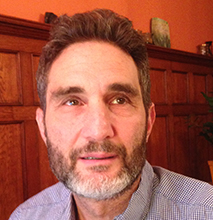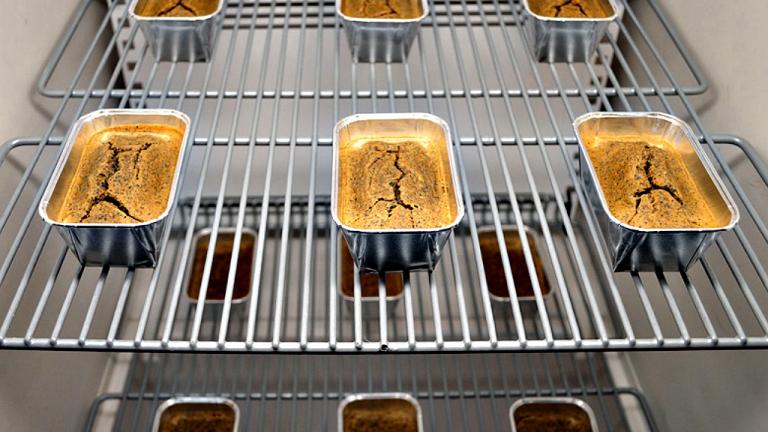When Big Oil companies like Exxon-Mobil and Chevron set their sights on a prime new oil reserve in Africa, Asia, or the Middle East, the first phone call they make usually isn’t to the government office putting it up for sale. Instead, they ring up one of their contacts in a small, elite group of so-called “fixers,” a shady cabal of a few dozen well-connected billionaires who hold the strings on the market for the world’s most valuable commodity. The fixer gets a fat fee and a straightforward assignment: Do whatever you need to do to get us those oil rights.
Unlike the U.S., where oil rights are held by individual property owners and leased to mining companies, in most developing nations oil rights are held by the government, and getting them means having a personal relationship with the right ministers — and knowing how to grease their palms. Since the mid-1900s, oil companies have relied on fixers to do their dirty work, crisscrossing the globe with a Rolodex stacked with the calling cards of corrupt heads of state. In the end, we get cheap oil, oil companies get plausible deniability, and the leaders of some of the world’s most oppressive regimes get astronomically rich.
Ken Silverstein is a veteran journalist who has spent the last several years finagling his way into the traditionally hyper-reclusive world of oil fixers, gaining unprecedented access to many key players and amassing a portfolio of outrageous tales of bribery, exploitation, and obscene wealth. His book, The Secret World of Oil, hit shelves Tuesday, and I spoke to him about how U.S. companies continue to skirt anti-bribery laws in the high-stakes pursuit of oil.
Q. The oil companies that are using fixers, these are the companies that people are familiar with — Exxon, Chevron?

Verso Books
A. In all the big oil companies, it would be rare for them never to use fixers in their deals. The bigger firms like Exxon have a lot of power and local knowledge and may handle this sort of thing on their own. But even Exxon, for part of the negotiations, is going to rely on a fixer. One of the reasons is that it’s a dicey game. It’s not always flat-out bribery, although in the old days it really was. The old model was that let’s say you were a company and you wanted a concession in Nigeria. Well, you’d go to Fixer A and give Fixer A, say, a million dollars, and Fixer A would go to his friends in the Nigerian government and wire half a million dollars into a few Swiss bank accounts — or just, you know, a suitcase full of cash. That was it. Fixer A kept his half million, the government officials had their half million, and the company got its oil concession. Pretty simple, pretty straightforward.
Well, that’s changed a lot, partly because the U.S. and Europe have outlawed bribery. So it’s gotten dicier. There’s a senior Halliburton official who’s currently in jail, who was implicated in a massive bribery scandal that helped Halliburton win a multimillion dollar stake in Nigeria. Typically, though, the companies want one or two degrees of separation — you’re not going to have your senior vice president meeting with a government official who you need to pay off. You want an intermediary, a fixer who can handle that, who, if anything goes wrong, you can disown all knowledge of and the fixer gets dumped and blamed.
Q. Is any of this legal, what the fixers are doing? It seems like it’s in a strange grey area.
A. It’s illegal if you get caught. But you’d rarely be so stupid now as to wire money into an official’s account, you don’t do it that way. Here’s a real example from what Exxon did in Equatorial Guinea, one of the world’s worst dictatorships sitting on untold amounts of oil. In some places where there is no corruption, there’s closed-door bidding and whoever makes the best offer wins. In a place like Equatorial Guinea that’s not the way it works. It’s whoever figures out how to give the president and his inner circle the most money, gets the contract. And sometimes it may be flat-out bribes, but Exxon doesn’t want to do that. What did Exxon do? They wanted land to build their compound, and to develop their project. And where did they buy the land? “Well, the president owns some land and it would be perfect for us.” And so they just overpaid by an enormous amount of money, and it’s clearly just putting money in the president’s pocket.
Q. Here, in Texas or North Dakota or wherever, you have a private landowner who owns the mineral rights and can sell them to whoever they want. But in the countries you’re talking about oil is owned to start with by the government. Does that lend the process to the kind of corruption you’re talking about?
A. It’s a very highly politicized process to get access to that oil, so yes it absolutely does lend itself to corruption. And it also lends itself to reinforcing the power of these regimes that frequently are dictatorships. I want to cite Ed Chow, a former Chevron executive. He said: “In Texas, I can convince landowners to lease me their mineral rights. They get a royalty check every month and the companies leave a small footprint on their land. What’s not to love? There’s no equivalent in places like Nigeria or Angola or Kazakhstan. You get the land, but you don’t provide a lot of jobs, you may be destroying the environment, and most of the profit goes to international capital. The companies don’t have a strong case to sell to local communities, so they come to not only accept highly centralized government, but to crave it. A strongman president can make all the necessary decisions. It’s a lot easier to win support from the top than to build it from the bottom.”
That’s precisely the environment where fixers thrive.
Q. To what extent is the U.S. government involved with these kinds of transactions?
A. There’s no question that U.S. companies use fixers, and typically it’s not a big secret. Certainly the U.S. government has either turned a blind eye or actively encouraged the use of fixers. I’ll give you one example. There was an American businessman named Jim Giffen who was very prominent in the Soviet Union before the collapse and afterwards, and he had very strong business ties in Russia and Kazakhstan. He was a personal friend of the president of Kazakhstan. And there were a few concessions available that every major oil company wanted in on, two of the largest concessions in the world, worth tens if not hundreds of billions of dollars. And so several American oil companies, I know Chevron and I think Exxon as well, but some of the big firms retained the services of Jim Giffen as their consultant. ‘Hey, he’s just a consultant, he’s just giving us the lay of the land.’ Well it turned out that he actually had taken fees paid to him by the oil companies and used part of them to pay money directly into bank accounts controlled by the president of Kazakhstan and the prime minister. He bought the president and first lady matching snowmobiles, and he bought the first lady jewelry. Everybody knew what was going on.
Of course, when he got caught, the oil companies were “shocked,” you know, “Oh, we had no idea, we just thought he was getting us the concessions somehow.” And the U.S. government was certainly aware of what was going on. And, in fact, Giffen got busted, went to trial, and at the end of the trial, he said “The U.S. government knew and approved, and I was in contact with the CIA, and everybody was aware of what I was doing.” And the judge agreed, the judge threw out the case. So the U.S. government is appalled and outraged when French companies pay bribes, or even more so when Chinese companies pay bribes, and if U.S. companies pay bribes, it’s like “Really we knew nothing about that, oh, that’s terrible.” But everybody knew what was going on. That’s how the oil business runs.
Q. It makes sense why U.S. oil companies would want to hire fixers, when you see who they have to deal with to get access to oil. You tell the incredible story of Teodorin Obiang; who is he?
A. He is the son of the dictator of Equatorial Guinea, and truly, the tales of corruption and debauchery are like something out of a Garcia Marquez novel or something. He’s the Minister of Environment, popularly called the “Minister of Chopping Down Trees” because under his tutelage they clear-cut forests. He was receiving vast bribes from the governments that were exporting the logs from the forests, and he clearly was stealing an enormous amount of money from the national treasury. It’s really like a Godfather-type clan in Equatorial Guinea. It’s an organized crime syndicate. Obiang bought himself a $30 million mansion in Malibu, California. He had commissioned about a billion-dollar yacht. It would have been the second-biggest yacht in the world, this absurd thing, and I mean this is in a country where 99 percent of the people are living on $100 a month. He had a private jet, he had all sorts of Michael Jackson memorabilia which he’d spent millions of dollars for, a fleet of about 50 luxury vehicles.
His salary as the Minister of Environment was $6,000 a month. Clearly he was not skimping and saving every month, he was committing wholesale theft of state resources. So the oil companies do like dictatorial governments because there are fewer decision makers, it’s easier to arrange these deals. You just have to find the two or three people who can say yes and everything works out smashingly.
Q. And it’s the fixers who are helping them find the people to say yes.
A. Certainly they are. They’ll know the guy. In fairness to the oil companies, I doubt they’re thrilled they have to deal with a family as absolutely appalling as the Obiangs, but in the end they’re willing to do it. Obiang has ruled since 1979, and if you do business over there you are going to pay off the government. They own everything. They’ve stolen everything. If you want food for your compound you’re going to hire somebody’s relative and give them the contract.
There was a former executive at Mobil, before the merger with Exxon, who I spoke with, he had been in Angola for years. And he said “I spend 95 percent of my waking hours trying to figure out how to technically not violate the Foreign Corrupt Practices Act.” He said there were constant demands from government officials for something or other and he had to figure out a way not to violate the Foreign Corrupt Practices Act, but not to say no, either. So you’re always playing a dangerous game here.
Q. Is there anything that the oil companies who are involved with these transactions can do to mitigate the corruption they’re paying into?
A. It’s sort of a race to the bottom, and it’s a problem because everybody does it. I do think it’s true that Chinese companies are much more likely to be bribing governments to get deals than U.S. companies are, not because of any moral inferiority but because they don’t have the same worries about getting caught. It’s sort of like, in a sense, campaign finance. Everybody says “Oh, we’re not going to unilaterally disarm, we’re not going to stop accepting donations until the other side does.” I find that a troubling argument. It’s an easy excuse to keep doing the wrong thing. And to a certain extent that’s true in the oil business as well. But you have to try to minimize these off-the-book payments, because there’s no question that when you pay off an Obiang, or a Nazarbayev in Kazakhstan, or the Aliyev family in Azerbaijan, you are enriching and entrenching in power some really, really bad people, who are stealing money wholesale from their state treasuries and sharing it out with their cronies. The population gets no benefit.
There are some places where the corruption is so endemic or the political repression is so vile, that you just have to think “Really, do we have to do business with these people? Do we need Equatorial Guinea’s oil that desperately?” And the oil companies and the U.S. government do have leverage. These countries want U.S. companies involved, and Equatorial Guinea is a tiny little country. We could really put pressure on that country to hold elections that were free and fair. Obiang is a thug, and he’s not just going to give up power. But you could make it hurt for him to hold on to power, and you could publicly condemn him over and over again, and you could put limits on U.S. investment. The choice is not simply get all the oil we can and get out.
 This story was produced as part of the Climate Desk collaboration.
This story was produced as part of the Climate Desk collaboration.




